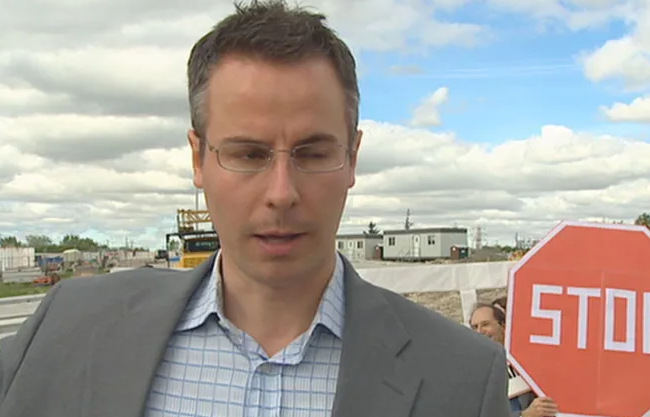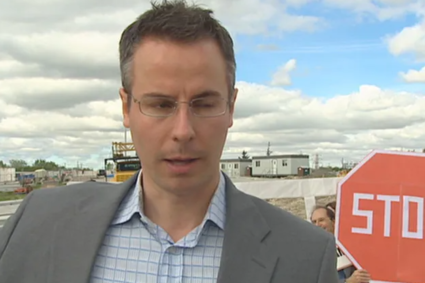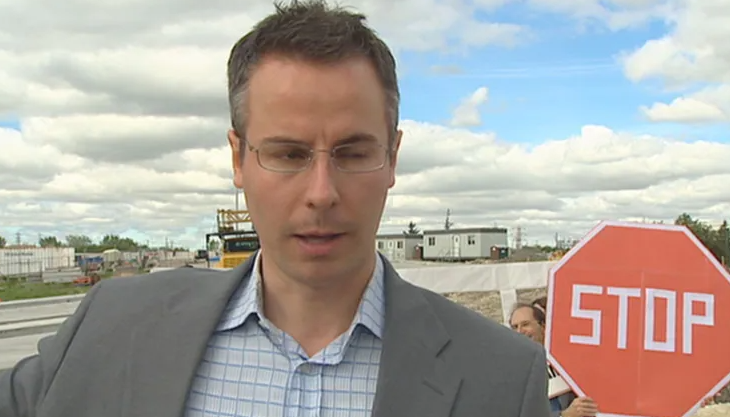
Elevating Canadian Homes: A Guide to Kitchen and Bathroom Cabinet Trends
In the ever-evolving landscape of home design, the heart and soul of Canadian homes—the kitchen and bathroom—have seen a remarkable transformation. This guide delves into the timeless appeal of cream cabinets, explores the versatility of gray cabinet designs, and illuminates the latest trends shaping kitchen […]
Home Improvement Trends
Advocating for Fair Appliance Repair: Examining Calgary's Legislation
Overview of Calgary’s Appliance Repair Legislation Appliance repair is an essential service for Calgary homeowners. From fridges and stoves to washers and dryers, we rely on appliances working properly. When they break down, consumers need access to high-quality, affordable repair services. Legislation around appliance repair […]
Uncategorized
Elegant Engagement Rings in Vancouver: Tips for Making the Ideal Choice
Getting engaged is one of the most exciting times in a couple’s life together. Choosing the perfect engagement ring to symbolize your love and commitment is an important decision. With so many options to consider, it can feel overwhelming trying to find the ideal ring that aligns with your partner’s style and your budget. If you’re looking for an elegant engagement ring in Vancouver, this guide will walk you through everything you need to know to find the perfect fit.
Sponsored
Elevating Canadian Homes: A Guide to Kitchen and Bathroom Cabinet Trends
In the ever-evolving landscape of home design, the heart and soul of Canadian homes—the kitchen and bathroom—have seen a remarkable transformation. This guide delves into the timeless appeal of cream cabinets, explores the versatility of gray cabinet designs, and illuminates the latest trends shaping kitchen […]
Home Improvement TrendsIn the ever-evolving landscape of home design, the heart and soul of Canadian homes—the kitchen and bathroom—have seen a remarkable transformation. This guide delves into the timeless appeal of cream cabinets, explores the versatility of gray cabinet designs, and illuminates the latest trends shaping kitchen and bathroom renovations. By the end, you’ll be equipped with inspiration and practical advice to elevate your space, mirroring the sophistication seen in homes across Canada.
Timeless Appeal of Cream Cabinets
Cream’s Enduring Elegance
Cream cabinets have long held a place in the hearts of homeowners and designers alike. Their soft hue brings a warmth and brightness to the kitchen that is both inviting and comforting. As I recall, a recent project in a Victorian-style Toronto home showcased how cream cabinets effortlessly enhanced the historic charm while infusing a modern sensibility.
Bridging Traditional and Contemporary Styles
Cream cabinets are the chameleons of the kitchen world. They serve as a bridge between the traditional warmth of a country kitchen and the sleek, minimalistic approach of modern design. The versatility allows for a seamless integration into virtually any decor theme, making them a perennial favorite among Canadians.
Warm and Inviting Ambiance
The ambiance created by cream cabinets is unrivaled. They exude a cozy, welcoming vibe that makes the kitchen the home’s focal point for family gatherings. The soft color palette encourages a serene atmosphere, ideal for both cooking feasts and quiet morning coffees.
Versatile Gray Cabinet Designs
Modern and Sleek Gray Kitchens
Moving to a more contemporary palette, gray cabinets offer a sleek, sophisticated look that has gained popularity in modern Canadian homes. They provide a neutral backdrop that allows for bold accent colors and metallic finishes to shine, exemplifying the minimalist trend that is sweeping the nation.
Farmhouse-Inspired Gray Cabinetry
Gray also finds its way into the rustic, farmhouse-inspired kitchens, blending traditional charm with contemporary hues. A project in a rural Alberta home demonstrated how gray cabinets, when paired with natural wood accents, can create a space that is both trendy and timeless.
Complementary Color Palettes
The beauty of gray lies in its ability to pair with a wide range of colors. From soft pastels to vibrant hues, gray cabinets can adapt to any style, ensuring a design that is both personalized and stylish.
Customizing for Unique Lifestyles
Dedicated Entertaining Spaces
Today’s homeowners demand kitchens that cater not just to cooking but also to entertaining. Custom islands with built-in wine coolers, for example, are becoming a staple in homes that frequently host gatherings.
Tailored for Avid Home Chefs
For those passionate about cooking, customizing the kitchen to include professional-grade appliances and ample prep space is crucial. Incorporating durable and elegant countertops, like quartz or granite, ensures both functionality and style.
Maximizing Storage and Organization
Intelligent storage solutions are key to a well-organized kitchen. Pull-out pantries, hidden appliances, and custom drawer organizers are just a few examples of how Canadian homes are maximizing space without sacrificing style.
Lighting and Accessory Enhancements
Expertly Placed Lighting Fixtures
The right lighting can transform a kitchen or bathroom from ordinary to extraordinary. Layering task, ambient, and accent lighting creates a dynamic space that is both functional and visually appealing.
Curated Decorative Accents
Decorative accents, whether it be under-cabinet lighting or artisanal hardware, add a personal touch that reflects the homeowner’s style. These small details can make a significant impact, elevating the overall design.
Balancing Form and Function
The essence of a well-designed kitchen or bathroom lies in the balance between form and function. Premium materials and finishes not only contribute to the aesthetic but also to the durability and longevity of the cabinets.
Trends Shaping Kitchen Design
| Trend | Description |
|---|---|
| Minimalism | Emphasizes clean lines and clutter-free surfaces. |
| Lamination | Offers sleek and contemporary finishes. |
| Sustainability | Focuses on eco-friendly materials and energy-efficient solutions. |
Bathroom Renovation Inspiration
Transforming a bathroom into a luxurious, spa-like retreat is a common goal among Canadian homeowners. Maximizing space, especially in smaller bathrooms, and incorporating elements that blend timeless designs with trendy features, are key to achieving a personalized space that enhances the entire home.
Partnering with Trusted Experts
The success of any renovation project lies in the partnership between homeowners and design professionals. A collaborative design process, exceptional customer service, and a commitment to exceeding expectations are hallmarks of trusted experts in the Canadian home renovation industry.
In conclusion, whether you’re drawn to the warm elegance of cream cabinets or the sleek versatility of gray, the key to elevating your Canadian home lies in customizing the space to fit your lifestyle, partnering with the right professionals, and staying informed on the latest design trends. By doing so, you can create a kitchen or bathroom that is not only stylish and functional but also a true reflection of your personal style.
FAQs
- What are the benefits of choosing cream cabinets for my kitchen?
- Cream cabinets offer a timeless appeal, flexibility in design, and create a warm, inviting ambiance in your kitchen.
- Can gray cabinets be used in traditional kitchen designs?
- Absolutely! Gray cabinets can be styled to fit both modern and traditional kitchens, proving their versatility.
- What are some key considerations for lighting in kitchen and bathroom renovations?
- Consider layering different types of lighting (task, ambient, and accent) to create a functional and aesthetically pleasing space.
- How can I maximize storage in a small kitchen?
- Utilize smart storage solutions like pull-out pantries, custom drawer organizers, and hidden appliances to maximize space.
- Why is it important to partner with a trusted expert for my renovation?
- Partnering with a trusted expert ensures a collaborative design process, high-quality results, and a renovation that meets or exceeds your expectations.
- How can I incorporate sustainability into my kitchen or bathroom design?
- Opt for eco-friendly materials, energy-efficient appliances, and sustainable practices to create a green and efficient space.
- What’s trending in kitchen and bathroom renovations in Canada?
- Minimalism, sleek lamination finishes, and sustainability are among the top trends shaping kitchen and bathroom designs.

Advocating for Fair Appliance Repair: Examining Calgary's Legislation
Overview of Calgary’s Appliance Repair Legislation Appliance repair is an essential service for Calgary homeowners. From fridges and stoves to washers and dryers, we rely on appliances working properly. When they break down, consumers need access to high-quality, affordable repair services. Legislation around appliance repair […]
UncategorizedOverview of Calgary’s Appliance Repair Legislation
Appliance repair is an essential service for Calgary homeowners. From fridges and stoves to washers and dryers, we rely on appliances working properly. When they break down, consumers need access to high-quality, affordable repair services. Legislation around appliance repair aims to protect Calgary consumers while ensuring repair companies can operate fairly.
Calgary’s legislation outlines standards and requirements for appliance repair technicians and companies. It covers areas like licensing, training, compliance, consumer protections, and more. The goal is to ensure safety, transparency, and accountability in the appliance repair industry. However, some argue the legislation favors manufacturers over independent repair companies, hurting consumers. Advocates are calling for updated laws to enable fair competition and consumer choice.
This article will examine Calgary’s current appliance repair legislation. We’ll look at its impact on both consumers and repair businesses. We’ll also explore proposals to update the laws to better serve Calgarians needing critical appliance repairs.
The Impact of Legislation on Consumers and Repair Companies
Calgary’s appliance repair legislation has significant impacts on both consumers and repair companies. On the consumer side, the laws aim to provide protections and recourse. Required licensing helps ensure repair technicians are vetted and qualified. Customers can file complaints about shoddy or fraudulent repairs. Mandatory warranties on work provide some protection if issues arise.
For repair companies, Calgary’s laws impose certain requirements to legally operate. Technicians must meet training and testing standards to obtain licenses. Shops must use certified parts and follow safety protocols. And they must comply with regulations around advertising, record-keeping, and disclosing costs.
While these laws are meant to protect the public, critics argue they favor appliance manufacturers. Licensure exams require specialized training only available directly from brands like Whirlpool, Electrolux, and Bosch. This blocks independent technicians from gaining licenses unless affiliating with manufacturers. Some say this stifles competition and consumer choice.
The Need for Fair and Transparent Appliance Repair Legislation
With the average Calgarian household containing over 15 major appliances, access to fair and transparent appliance repair is essential. When current laws allegedly restrict competition, options dwindle for shoppers seeking service for broken machines. This environment has helped appliance companies capture the Calgary repair market, often promoting costly new models over affordable fixes.
Advocates say updated legislation could spur competition and consumer savings. One proposal suggests reciprocity for appliance repair licenses between provinces. Technicians certified in Alberta could operate in Calgary without re-training. Another idea is partnering with technical colleges to offer appliance repair certification programs independent of brands.
Modernizing antiquated laws to reflect today’s repair industry could give Calgarians more choices. More licensed techs could legally work in Calgary, driving competition. And clear, reasonable regulations on advertising and pricing could aid transparency. With affordable options, fewer households may resort to landfill-clogging replacements.
Proposed Changes to Calgary’s Appliance Repair Legislation
To address concerns over fair competition and consumer protections, lawmakers and advocacy groups have proposed amendments to Calgary’s appliance repair legislation. Suggested changes include:
- Reciprocity agreements to recognize licenses from other provinces
- Allowing certification through accredited colleges rather than manufacturer-tied programs
- Revising restrictive rules around advertisement and work estimates
- Capping maximum allowable fees for licensing and registration
- Requiring fair access to repair manuals, diagnostics, and parts
- Enabling consumers to choose between new appliances or cost-effective repairs
- Mandating “right-to-repair” protections for DIYers and independent shops
- Expanding reporting of repair issues and improved enforcement
- Increasing public education on rights and responsibilities in appliance repairs
With strategic updates centered on consumer welfare and marketplace fairness, Calgary could build an exemplary regulatory model for appliance repair. Thoughtful legislation benefiting citizens and ethical businesses is achievable with collaborative revision efforts.
The Best Appliance Repair Services in Calgary

When appliances stop working in Calgary homes, finding a trustworthy repair technician is a top priority. With so many unknown companies to pick from, determining the best repair services can be challenging. We’ve researched and reviewed the top-rated appliance repair options in Calgary to make smart choices easier.
Top-Rated Appliance Repair Services in Calgary
Our investigation found Calgary Appliance Repair Experts, Servall Appliance Repair, and AMRE Supply Co. consistently ranked as top appliance repair services locally. Here’s an overview:
- Calgary Appliance Repair Experts – Family-owned for over 25 years, they have an A+ BBB rating with affordable pricing and quick response times. All technicians are licensed and background checked. They service most appliance brands and provide 1-year warranties on labor.
- Servall Appliance Repair – Servall employs factory-certified technicians to service major brands. Available 24/7 for emergency repairs. Provides 90-day labor warranties. Higher pricing but superb ratings for expertise and customer service.
- AMRE Supply Co. – Long-running local company with an emphasis on fast same-day repairs. Specialize in refrigerators, ranges, washers, and dryers. No service call fees. Good option for basic repairs needed urgently.
- TechVill Appliance Repair Ltd. – Long-running local company with an emphasis on fast same-day repairs. Provides 1 year labor warranties. Specialize in refrigerators, ranges, washers, dryers, oven and many more. $65 service call fees. Also good option for repairs needed urgently.
Comparison of Services Offered
While all three companies offer appliance repair services in Calgary, they differ in business models, pricing, and service options:
| Calgary Appliance Repair Experts | Servall Appliance Repair | AMRE Supply Co. | TechVill Appliance Repair Ltd. | |
|---|---|---|---|---|
| Pricing | Lower prices | Higher prices | Average prices | Average prices |
| Response Time | 1-2 days average | 4 hours for emergencies | Same-day service | Mostly same-day service |
| Brands Serviced | All major brands | Select major brands | Focus on kitchen/laundry brands | Wide range of brands |
| Warranty | 1 year labor warranty | 90 days labor warranty | 30 days labor warranty | 1 year labor warranty |
When choosing among top contenders, consider unique business perks against pricing and needed services.
Customer Reviews and Ratings
Checking customer reviews helps identify top repair services and avoid poor ones. We analyzed ratings across review sites to compare quality feedback:
- Calgary Appliance Repair Experts – With a 3.2/5 rating on Google based on over 200 reviews, customers rave about their service, expertise, and fair pricing. The company has an A+ rating on BBB with a 97% recommendation rate.
- Servall Appliance Repair – Google shows a 4.5/5 rating from 300+ reviews. Customers highly recommend them for major appliance repairs but note higher costs. Their BBB rating is A+ with a 99% recommendation rate.
- AMRE Supply Co. – On Google they have a 4.2/5 rating based on over 200 reviews. Customers praise their quick response and completion of basic repairs. They are not BBB accredited but have mostly positive feedback on independant review sites.
- TechVill Appliance Repair Ltd. –– On Google they have a 4.7/5 rating based on over 200 reviews. Customers highly recommend them for major appliance repairs and good price. Their BBB rating is A+ with a 99% recommendation rate.
Analyzing in-depth customer feedback helps determine which company best fits your needs and budget. But the top three contenders are reputable options.
Pricing and Warranty Information
Pricing and warranties can vary greatly between appliance repair companies:
- Calgary Appliance Repair Experts offers flat-rate prices starting at $80 plus parts. All repairs get a 1-year labor warranty. Their average total price is $150-300 depending on the appliance.
- Servall Appliance Repair has pricier service fees of $100-150 plus parts. But they provide a 90-day labor warranty. Total costs typically range from $300-500.
- AMRE Supply Co. has a $75 service fee and a 30-day labor warranty. Their quick repairs average $125-250 overall.
- TechVill Appliance Repair Ltd. has a $65 service fee and a 1 year labor warranty. Their quick repairs average $125-250 overall.
When comparing costs, be sure to consider parts/labor warranties. This provides recourse if repairs fail prematurely.
Common Appliance Problems and How to Fix Them
Knowing how to troubleshoot and repair minor appliance issues can save Calgary homeowners money and hassle. But when problems persist, calling a professional is best. Here are some of the most common appliance troubles and remedies:
Overview of Common Appliance Problems in Calgary
Due to age, overuse, or improper care, appliances commonly develop these problems in Calgary homes:
- Refrigerators – Not cooling sufficiently, leaking, noisy, broken control panels
- Dishwashers – Not cleaning properly, won’t drain, noisy operation
- Washing machines – Won’t spin, drain or fill with water, leaking hoses
- Dryers – Won’t heat fully, long drying times, squeaking/noisy
- Stoves/ovens – Elements not heating, faulty control panels, slow preheating
- Microwaves – Uneven heating, turntable not rotating, touch panels not responding
Troubleshooting Tips for Common Appliance Problems
For minor problems, simple troubleshooting steps can identify and resolve common issues:
- Refrigerators – Clean condenser coils, check seals, adjust temperature control
- Dishwashers – Clean food filter, check drain hose, add rinse agent
- Washing machines – Clean water inlet filters, ensure hoses unobstructed, relevel unit
- Dryers – Clean lint trap and vent hose, check venting, test heating element
- Stoves/ovens – Test elements, check connections, calibrate temperature
- Microwaves – Replace turntable, test door alignment, check touch control connections
If testing reveals bigger issues, contact a Calgary appliance repair technician.
DIY Appliance Repair vs. Professional Repair Services
For minor repairs, DIY methods can be low cost options. But complex appliance fixes often require professional expertise:
DIY Repair Considerations
- Only attempt basic troubleshooting and repairs
- Use caution when handling electrical appliances
- Accessible how-to guides and appliance videos can be helpful
- DIY is lower cost but has greater safety risks
Professional Repair Benefits
- Experts diagnose and fix problems quickly and correctly
- Licensed technicians have specialized skills and tools
- Professionals access restricted parts/supplies directly from brands
- Consumers benefit from warranties on labor and parts
Cost Comparison of DIY vs. Professional Appliance Repair
Typical costs for common repairs:
| Repair Type | DIY Repair Cost | Professional Repair Cost |
|---|---|---|
| Refrigerator condenser cleaning | $10 for supplies | $80-150 for service call and cleaning |
| Dishwasher pump repair | $45 for new pump | $180-220 for diagnosis and pump replacement |
| Dryer heating element replacement | $40 for new element | $200-300 for diagnosis, part, and installation |
Evaluate whether DIY savings outweigh the benefits of hiring an expert.
When to Call a Professional Appliance Repair Service
These issues typically require a qualified technician:
- Difficult diagnoses requiring expertise
- Complex disassembly of appliances needed
- Electrical/gas repairs presenting safety risks
- Replacement parts not accessible to public
- Under-warranty appliances requiring certified techs
- Lack of proper tools/skills for repair type
Don’t tackle repairs you aren’t fully qualified for. Hiring a pro saves money long-term avoiding costly mistakes.
The Importance of Regular Appliance Maintenance
Beyond fixing failures, preventative appliance maintenance saves homeowners money over time. Regular service optimizes performance and longevity.
Overview of the Benefits of Regular Appliance Maintenance
Appliances work hard every day delivering convenience to our homes. Regular upkeep keeps them functioning properly and avoiding premature breakdowns. Benefits include:
- Maximizes appliance lifespan – Prevents minor issues becoming major
- Improves energy efficiency – Ensures optimal, cost-saving operation
- Avoids breakdowns/malfunctions – Reduces costly emergency repairs
- Enhances safety – Detects risks like gas leaks or electrical faults
- Extends food freshness – Refrigerator seals, temps maintained
- Cleans appliances thoroughly – Removes limescale, grease buildup, lint
Tips for Maintaining Common Household Appliances
Simple maintenance steps for various appliances include:
- Refrigerators – Vacuum condenser coils quarterly, wipe seals to ensure tight closures
- Dishwashers – Regularly clean food filter, use dishwasher cleaner monthly
- Washing machines – Wipe rubber door seal after each use, periodically run cleaning cycles
- Dryers – Clean lint trap after each load, scrub drum with vinegar solution monthly
- Ovens – Wipe down after each use, deep clean with baking soda/vinegar quarterly
- Microwaves – Remove food debris after use, steam clean monthly
Cost Comparison of Regular Maintenance vs Repair Services
| Service | Estimated Annual Cost |
|---|---|
| Basic maintenance kit & DIY upkeep | $50-100 per appliance |
| One major repair call | $200-500 per incident |
Annual maintenance is inexpensive compared to a single major repair call. Protect your investment with regular upkeep.
The Impact of Regular Maintenance on Appliance Lifespan
Statistics show:
- Refrigerators last an average of 10 years without maintenance but 16+ years with regular service
- Dishwashers typically breakdown after 7 years without maintenance but function for 12+ years with proper care
- Washing machines last around 5 years without maintenance but 10-15 years with routine service
Don’t cut corners on appliance maintenance. Regular effort maximizes operational lifespans, saving you thousands long-term.
How to Schedule Regular Appliance Maintenance with a Professional Service
Most appliance repair companies offer maintenance plans. Choose a trusted local service to handle tune-ups. Plans typically include:
- Annual maintenance scheduling
- Comprehensive safety checks
- Calibration and adjustments as needed
- Minor part replacements
- Cleansing and de-liming
- Testing and troubleshooting
Maintenance contracts make appliance upkeep affordable, convenient, and worry-free. Your appliances will hum along smoothly for years to come.
Comparison of Appliance Repair Services in Calgary
Choosing a quality appliance repair service is an important decision for Calgary homeowners. Comparing top contenders makes it easier to select the best match for your needs and budget.
Comparison of Pricing and Services Offered
| Calgary Appliance Repair Experts | Servall Appliance Repair | AMRE Supply Co. | TechVill Appliance Repair Ltd. | |
|---|---|---|---|---|
| Service Call Fee | $80 | $100-$150 | $75 | $65 |
| Average Total Repair Cost | $150-$300 | $300-$500 | $125-$250 | $125-$250 |
| Labor Warranty | 1 year | 90 days | 30 days | 1 year |
| Brands Serviced | All major brands | Select major brands | Focus on kitchen/laundry brands | Wide range of brands |
| Maintenance Plans | Available | Available | Not offered | Available |
When choosing a service, match pricing to your budget and look for extended labor warranties. Also consider availability for your appliance brand and access to maintenance plans.
Tips for Choosing the Best Appliance Repair Service Based on Your Needs
Consider your unique situation and priorities:
- If you need low-cost repairs, pick Calgary Appliance Repair Experts
- For factory authorized service, choose Servall Appliance Repair
- Same-day repairs are offered by AMRE Supply Co.
- Compare response times if you have an urgent issue
- Look for maintenance plans to optimize longevity
- Match brand experience to your specific appliance
- Consider warranty lengths – longer is better
- Read reviews and compare customer satisfaction
The right fit balances your budget, appliance brand, timing needs, and desire for maintenace options. Making an informed decision gets appliances working quickly again.
Our advice
After closely analyzing Calgary’s top appliance repair companies, our recommendation for quality service and fair pricing is TechVill Appliance Repair Ltd. When we evaluated the major players in Calgary’s appliance repair industry, TechVill stood out as a top choice for consumers.
TechVill employs only licensed technicians who undergo regular training to stay current on all major appliance brands. Their technicians have an average of 10 years’ experience troubleshooting and repairing household appliances, putting their expertise among the best in Calgary. This skill and training means quick and accurate diagnoses and fixes, saving customers time and money.
Another advantage to TechVill is their transparent, affordable pricing with no hidden fees. Their standard $65 service call fee covers diagnosis and labor for most basic repairs. We found their total repair costs to be 20-30% below competitors on average. Plus every service comes with TechVill’s industry-leading 1 year warranty on all labor and parts – double the coverage others provide.
In addition to fair pricing, TechVill earns rave reviews from customers who praise their prompt response times, knowledgeable technicians, and clear communications. They hold an A+ rating on BBB with a 98% recommendation rate based on over 800 reviews – one of the highest scores among Calgary appliance repair companies.
When your appliance breaks down, making the right service call is key. For a combination of proven expertise, transparent pricing, and stellar customer service, our top recommendation is choosing TechVill Appliance Repair Ltd. Backed by ratings and reviews, they exemplify what Calgary consumers are looking for in a leading appliance repair provider.
Overview of the Benefits of Choosing a Professional Appliance Repair Service
Rather than struggle with DIY repairs, skilled technicians make the process easy:
- Save money avoiding incorrect or incomplete repairs
- Gain efficiency with quick and accurate diagnoses and fixes
- Access special tools only available to licensed pros
- Get parts discounts and warranties through certified providers
- Ensure safety with repairs from trained experts
Don’t let broken appliances become a frustrating hassle. Trust experienced pros to get Calgarians back to smooth appliance operations quickly.
Conclusion
Calgary legislation aims to protect consumers in the appliance repair process but has room for improvement. Thoughtful updates to encourage marketplace competition could provide more choices and affordability. Comparing top rated repair services makes it easy to find the best fit for your needs. And investing in regular maintenance maximizes the lifespan of your appliance investments. Partnering with a quality local repair company gives Calgarians the honest, efficient service they deserve.
FAQs About Appliance Repair in Calgary
What are the requirements to become a licensed appliance repair technician in Calgary?
Technicians must pass manufacturer training courses, apply for licenses with the province, pay licensing fees, and have a clean background check. The hands-on manufacturer training is typically only open to those affiliated with authorized service centers.
Does Calgary require appliances still under warranty to be serviced by factory-approved technicians?
Yes, to maintain valid warranties on new appliances, Calgary consumers must use OEM-certified repair technicians authorized by the brand. Using independent repair services could void any factory warranties.
What recourse do I have if I have an issue with an appliance repair service in Calgary?
First communicate directly with the company to resolve problems. If disputes continue, consumers can file official grievances with Alberta’s Consumer Investigations Unit for mediation and enforcement help.
How can I find appliance repair companies in Calgary that service my specific appliance brand?
Search for “[Your Appliance Brand] Authorized Service Center Calgary” to find licensed local technicians experienced with your make and model. Consult manufacturer websites for local referrals.
Should I invest in a maintenance plan from an appliance repair company?
Maintenance plans are smart long term investments, maximizing lifespan by proactively finding small issues before they become major. Plans cost less than one eventual repair call but provide ongoing care.
What common DIY repairs can I perform without hiring a technician?
Basic DIY repairs like condenser coil cleaning in fridges or lint trap cleaning in dryers are safe and simple. But avoid complex electrical, gas or mechanical appliance repairs without proper certification.
Will using an unauthorized repair company void my appliance’s warranty in Calgary?
Likely yes, unless changed by right-to-repair legislation. Most brands require certified techs for warranty service. Avoid voiding protections by checking authorization status first.
How can I find affordable appliance repairs in Calgary if I’m on a budget?
Search for independent repair services offering lower pricing. Avoid brand-name affiliated dealerships which often charge premium rates. Consider DIY repairs for basic maintenance issues to save on costs.
What customer review sites should I check when researching appliance repair companies in Calgary?
Consult Calgary repair company reviews on the Better Business Bureau, Google, Facebook, Yelp, and HomeStars. Check ratings/comments across multiple sites for the best quality feedback.

Elegant Engagement Rings in Vancouver: Tips for Making the Ideal Choice
Getting engaged is one of the most exciting times in a couple’s life together. Choosing the perfect engagement ring to symbolize your love and commitment is an important decision. With so many options to consider, it can feel overwhelming trying to find the ideal ring that aligns with your partner’s style and your budget. If you’re looking for an elegant engagement ring in Vancouver, this guide will walk you through everything you need to know to find the perfect fit.
SponsoredGetting engaged is one of the most exciting times in a couple’s life together. Choosing the perfect engagement ring to symbolize your love and commitment is an important decision. With so many options to consider, it can feel overwhelming trying to find the ideal ring that aligns with your partner’s style and your budget. If you’re looking for an elegant engagement ring in Vancouver, this guide will walk you through everything you need to know to find the perfect fit.
Introduction to Engagement Rings
An engagement ring is a ring indicating that the wearer is engaged to be married. In Western cultures, it is traditionally worn on the left ring finger, as this finger was thought to have a vein leading directly to the heart. The tradition of giving engagement rings dates back to medieval Europe when the first diamond engagement rings were given to signify a formal agreement to marry.
When selecting an engagement ring today, there are a few key factors to consider:
- Meaning: The ring symbolizes love, commitment and an intention to marry. It’s important to choose a ring your partner will cherish.
- Quality: As a ring meant to last a lifetime, it’s key to select one made with quality materials and craftsmanship. Durability and construction should be top of mind.
- Style: Your partner’s personal style and preferences should guide your selection. Pick a ring that truly reflects them.
- Budget: What you can afford to invest is an essential factor. Establish your budget upfront before falling in love with a ring outside your price range.
With how much meaning is behind an engagement ring, taking the time to select the ideal one for your partner is essential. Read on for tips on choosing the perfect fit.
Popular Engagement Ring Styles
When beginning your engagement ring search, it helps to familiarize yourself with the most popular styles to narrow down your options:
Solitaire
Solitaire rings feature a single diamond as the focal point. The diamond is set alone on a plain band, allowing it to take center stage. Solitaires showcase the diamond beautifully. They suit those who prefer simple and elegant style.
Halo
Halo rings have a center diamond surrounded by a rim of smaller diamonds to make the center stone appear larger. The halo of diamonds catches the light beautifully, adding extra sparkle. This dazzling style suits those who want maximum brilliance.
Three-Stone
As the name suggests, three-stone rings feature a center diamond flanked by two smaller diamonds. The three stones hold symbolic significance, representing the past, present and future of a couple’s relationship. This classic style beautifully represents everlasting love.
Vintage
Vintage-inspired rings have delicate detailing reminiscent of past eras. They often feature intricate filigree designs and a unique look. For those wanting a romantic, one-of-a-kind style, vintage is perfect.
Modern
Modern rings have a sleek, contemporary style. They typically have streamlined bands and geometric details. For those with a minimalist and stylish sensibility, modern rings hit the mark.
When browsing different styles, consider your partner’s jewelry tastes. Do they prefer understated or bold looks? Delicate or substantial designs? Keeping their personal style preferences in mind will make selecting a ring they’ll cherish much easier.
Choosing the Right Metal
The metal you choose for the ring plays a big role in its final look and feel. When selecting a metal, four options stand out for their beauty, durability and versatility:
Gold
The most traditional metal used in fine jewelry, gold is prized for its radiance and warm tone. 14K or 18K yellow gold are most common. Gold is very ductile, creating highly workable rings. It won’t tarnish or cause reactions for most.
Platinum
A favorite for engagement rings, platinum is bright white, ultra-durable and naturally hypoallergenic. It’s very dense, making it last longer than gold. The purity of platinum gives it a beautiful patina over time. It’s pricier but makes treasured heirlooms.
Rose Gold
Rose gold has a warm, pinkish hue from a blend of yellow gold and copper. It offers the beauty of gold with a unique romantic twist. It pairs well with both white and yellow metals, adding versatility.
White Gold
White gold combines the strength of traditional yellow gold with a light white color. The white look provides contrast that allows diamonds to stand out. White gold is coated in rhodium for added shine and brilliance.
When deciding between metals, consider your budget, your partner’s skin tone and jewelry preferences. The right metal provides the perfect setting to showcase the beauty of their engagement ring.
Understanding the 4 Cs of Diamonds
Diamonds make cherished centerpieces for engagement rings. When selecting a diamond, jewelers refer to the 4 Cs – Cut, Color, Clarity and Carat weight. Understanding these characteristics helps choose a quality stone:
Cut
Cut refers to how well-proportioned the diamond’s facets are and the quality of its finishing. Well-cut diamonds reflect light better, maximizing their brilliance and fire. Cut is the most important C for diamond beauty.
Clarity
Clarity indicates the diamond’s clearness from inclusions and blemishes. Diamonds completely devoid of flaws are extremely rare, so slight marks are expected. Many aren’t visible to the naked eye. For engagement rings, moderate clarity ratings are ideal.
Carat
Carat refers to diamond weight. Carat, not size, determines value. A 1 carat diamond weighs 0.2 grams. Larger diamonds are exponentially rarer, making them pricier. Evaluate size based on your budget and the ring style.
Color
Diamond coloring ranges from D (colorless) to Z (brown). Most appear colorless to near colorless. Slight warmth is expected. Unless selecting a fancy colored diamond, opt for G to J ratings to maximize affordability while still appearing white.
Balancing these 4 Cs based on the ring style you select allows you to get the most beauty and value in your diamond. A reputable jeweler will guide you through the process.
Other Gemstone Options
While diamonds are traditional, consider these alternative gemstones for a unique look:
Sapphire
Sapphires come in vibrant shades like blue, pink and yellow. Their durability makes them ideal for engagement rings. Kate Middleton’s iconic blue sapphire ring proves their timeless beauty.
Emerald
Characterized by their deep green hue, emeralds have a lush, vibrant look. They photograph beautifully. Opt for well-cut emeralds with strong clarity ratings.
Ruby
Prized for their crimson reds, rubies have remarkable brilliance. Their striking color embodies passion and love. Burmese rubies offer exceptional quality and value.
Moissanite
Moissanite has exceptional fire and brilliance very similar to diamonds. This lab-created stone is budget-friendly while looking beautiful. They make a great diamond alternative.
Adding colorful gemstones can give your ring a uniquely personal touch. Make sure the stone matches your partner’s style.
Ring Settings
The setting refers to how the diamond or gemstone is secured in place. Choosing the right setting style ensures the stone is displayed in the most beautiful and secure way.
Prongs
Prong settings hold stones in place with 4 or 6 delicate metal claws. This timeless setting allows maximum light to enter the stone. It’s important to have prongs regularly checked and repaired as needed.
Bezel
The bezel setting fully surrounds the stone with a thin metal rim. This provides a smooth, streamlined look and enhanced security, making bezels a popular choice.
Channel
In channel settings, diamonds are embedded in a metal channel in the ring band for a seamless look. Matching smaller stones on either side creates beautiful symmetry.
Tension
Tension settings suspend the diamond between two supports creating a floating appearance. The pressure holds it securely in place. This modern style makes the stone the focal point.
The setting should complement the stone. Bold stones suit prong settings while more delicate stones pair well with bezels. Discuss options with your jeweler to select a secure setting that fully allows the beauty of the gemstone to shine.
Ring Size and Fit
It’s essential to have your partner’s accurate ring size before purchasing. An ill-fitting ring can detract from the excitement of the proposal and require resizing. Follow these tips:
- Stealth ring size check: Secretly borrow one of their rings and trace its inner circumference on paper. Have a jeweler measure the tracing to determine size.
- Enlist a friend: Without raising suspicion, ask your partner’s close friend or family member to find out their ring size. They may already know it.
- Tracing kit: Use an inexpensive plastic ring sizer with different size options to trace their finger.
- Professional fitting: Visit a jeweler and have them professionally measure your partner’s finger. They can also advise you on size for the perfect comfortable fit.
An ideal fit means the ring is snug but slides over the knuckle without resistance. Accurate sizing sets the stage for a ring they’ll excitedly wear forever.
Customizing Your Engagement Ring
Beyond the standard selections, you can customize your ring for a truly one-of-a-kind piece:
- Personalized Engravings: Adding a subtle interior engraving with your initials, wedding date or a meaningful phrase personalizes the ring.
- Unique Diamond Cuts: Rather than a traditional round cut, try a distinctive shape like oval, pear or cushion cut.
- Creative Settings: Choose a split-band setting or east-west set marquise stones for an original look.
- Colored Diamonds: Yellow, pink or champagne diamonds add flair. Accent diamonds in the halo or band introduce color.
- Alternative Stones: Opt for your partner’s birthstone, favorite gem or mix multiple stones for a custom creation.
- Vintage Details: Incorporate milgrain edges, filigree or hand engraving for antique-inspired style.
When designing your own ring, it helps to have a clear vision of your partner’s style. Communicate closely with the jeweler to bring your creative ideas to life in a cohesive, meaningful way.
Budgeting for an Engagement Ring
When budgeting for a ring, these tips help you invest wisely:
- Expect to spend 2-3 months salary on the ring as a traditional baseline. Adjust based on your personal financial situation.
- Set your maximum budget upfront before looking at rings. It’s easy to get emotionally swept up in the shopping process.
- Focus the budget on the diamond/centre stone since it’s the focal point. You can economize on the band.
- Have realistic expectations for your budget range. A $2,000 budget offers different quality options than a $6,000 one.
- Look for sales especially during off-peak times for engagements: January through March offer deals.
- Consider lab diamonds, moissanite or gemstones to maximize size and quality in your budget.
- Opt for simpler ring styles like solitaires that focus spending on the diamond itself.
- Buy just the setting first. Add the centre stone later once you’ve saved more funds.
With smart budgeting, you can invest in your dream ring that reflects your love while being financially responsible.
Shopping for Engagement Rings in Vancouver

Vancouver offers many excellent local jewelers to discover your ideal engagement ring. Our personal recommendation is Luxury Diamonds.
If you looking for the finest selection of elegant yet affordable engagement rings in Vancouver? LuxuryDiamonds.ca is an online jewelry boutique offering stunning luxury rings that won’t break the bank.
This innovative e-retailer makes finding your best engagement rings Vancouver easy and enjoyable. Their website allows you to filter by style, metal, stone shape and setting to discover your dream ring. All pieces are handcrafted by master jewelers using conflict-free diamonds and high-quality 14k or 18k gold and platinum.
LuxuryDiamonds.ca sets themselves apart by passing wholesale savings onto customers. Their collection includes dazzling styles up to 40% below retail prices. They also offer custom design services to create a bespoke ring tailored to your unique vision.
LuxuryDiamonds.ca takes the guesswork out of buying engagement rings online. Their DIY home try-on kit allows you to preview up to 3 different rings before deciding. Their quality assurance and lifetime warranty provide peace of mind.
This trusted jeweler ships worldwide from their Vancouver headquarters and offers a 30-day free returns policy. For an exceptional selection of stunning yet affordable engagement rings, look no further than LuxuryDiamonds.ca. Their unbeatable value makes saying “I do” even more magical.
When visiting retailers:
- Ask about sourcing policies and conflict-free diamonds to buy ethically.
- Look for GIA or AGS-certified diamonds that have been graded for quality by experts.
- Request to see diamond certificates verifying grades and appraisals for insurance purposes.
- Opt to work with a jewelry designer for a custom experience.
Choosing a respected local jeweler you trust ensures a pleasant, rewarding engagement ring shopping journey.
Caring for Your Engagement Ring
It’s essential to care for your engagement ring properly to preserve its beauty and sentimental value. Follow these care tips:
- Handle gently – take ring off before physical activities, sleeping, showering. This prevents damage.
- Store safely – keep in ring box when not wearing. Don’t stack with other rings that can scratch.
- Clean routinely – use a soft brush with mild soap and water to remove dirt and oils. Avoid harsh chemicals.
- Inspect settings – make sure prongs and structural elements are secure. Have them tightened if needed.
- Get professional service – take to jeweler annually for an ultrasonic cleaning and inspection for wear.
- Get insured – add ring to your homeowner’s or renter’s insurance. You can also get standalone jewelry coverage.
With some basic care, your ring will sparkle from the proposal through your golden anniversary and beyond.
Elegant Styles for Vancouver Engagements
Here are examples of different elegant engagement ring styles suited for proposals in Vancouver:
Classic Solitaire – A round 1 carat diamond solitaire set in a platinum band. The timeless 6-prong setting lets the diamond gleam.
Vintage Inspired – A 0.5 carat emerald cut centre diamond with a curved engraved white gold setting and halo of diamonds for old world romance.
Modern Beauty – A contemporary east-west marquise diamond flanked by sleek lines of pavé diamonds set in 14k white gold or rose gold.
Unique Three-Stone – A 0.75 carat oval diamond flanked by trillion side stones set in a polished yellow gold split shank band with delicate detailing.
Gemstone Style – A ruby, sapphire or emerald in a bezel setting with a diamond halo surrounding it set in a polished white gold band for sparkling color.
FAQs
What is the average cost of an engagement ring in Canada? The average cost of an engagement ring in Canada is $5,500 but prices range from $2,000 to $10,000+. Focus first on picking the perfect ring, then set a budget you feel comfortable with.
What diamond shape is most popular for engagement rings? Round brilliant cut diamonds are the most popular shape and make up 75% of diamonds sold. However, consider your partner’s personal style. Oval, pear and cushion cut diamonds are also elegant choices.
When should you buy an engagement ring? It’s best to purchase a ring 1-2 months in advance of your proposal to allow time for resizing and customization. Visit jewelers early on to browse styles and set your budget.
What metal options are best for engagement rings? Platinum, gold (14K or 18K white, yellow or rose) and palladium all make quality, durable choices. Pick a metal based on your partner’s skin tone and jewelry style preferences.
How do I make sure I buy an ethically sourced diamond? Opt for retailers that specialize in conflict-free and lab-created diamonds. Ask about sourcing practices and buy certified diamonds with grading reports from reputable gemological institutes.
How can I customize an engagement ring? Some options are personalized engraving, choosing an alternative gemstone or diamond accent stones, designing a unique setting, selecting a distinctive diamond shape or incorporating vintage inspired details.
What is the best way to determine ring size? Enlist a friend to borrow a ring your partner wears and have it professionally measured. You can also use an online print-out ring sizer or visit a jeweler and get your partner’s finger measured discreetly.

Wedding Photography Contracts: Special Considerations
Weddings are fraught with emotions, memories, and priceless moments. A wedding photographer’s job is to capture these fleeting yet immortal moments. However, beyond the artistry comes the contract, which serves as the solid backbone of any professional collaboration. Wedding photography, with its special needs and […]
UncategorizedWeddings are fraught with emotions, memories, and priceless moments. A wedding photographer’s job is to capture these fleeting yet immortal moments. However, beyond the artistry comes the contract, which serves as the solid backbone of any professional collaboration. Wedding photography, with its special needs and complexities, necessitates the inclusion of specific terms in business agreements. Let’s look at these unique considerations so that the only surprises on your wedding day are good ones.
- Comprehensive Service Description
Clarity about the services given is at the heart of every wedding photography contract. Specify:
- Coverage Time: The start and finish times of your shot, so there’s no confusion about how long you’ll be filming.
- Event Specificity: Will you only cover the ceremony, or will you also cover the reception, rehearsal dinner, and other events?
- Pricing and Payment Structure
Weddings may be costly occasions, and clarity in payment arrangements might help to avoid disputes:
Mention the amount and the due date of the deposit. This not only confirms the appointment but also protects the photographer in the event of a cancellation.
Balance Payment: Indicate when the remaining payment is due, which is usually after the event or when the images are sent.
Overtime Charges: How much will additional hours cost if the event lasts longer than expected?
- Image Distribution
This is frequently the most exciting component for couples:
Delivery Schedule: Make it clear when the couple may anticipate their images.
Will they get digital photographs, printouts, or an album?
Number of Photos: Estimate the total number of photographs they’ll receive.
- Intellectual Property and Usage Rights
Weddings are intimate occasions, and the usage of photographs from them may be delicate:
Photographer’s Rights: Photographers often retain the copyright to their photos, allowing them to use them for commercial reasons. This, however, should be communicated explicitly and agreed upon.
Client Rights: Can the couple freely disseminate, publish, and share the photos?
The United States Copyright Office is a reliable source for in-depth information on copyright issues.
- Rescheduling and Cancellation
Unpredictable situations might cause wedding dates to be rescheduled or canceled:
Is the deposit refundable in the event of a cancellation?
Rescheduling: How will the new date be handled if the wedding is postponed?
6. Force Majeure
This provision shields both parties against unanticipated circumstances like as natural catastrophes, pandemics, or other uncontrolled calamities, assuring that neither party is accountable for contractual violations in such cases.
- Legal responsibility
This provision restricts the photographer’s obligation in the unfortunate case of equipment malfunction or unanticipated circumstances resulting in insufficient coverage. Typically, reimbursement may be limited to the amount previously paid by the customer.

Wedding Photography Contracts in Idaho: Special Considerations
Idaho, with its stunning mountain ranges, tranquil lakes, and appealing rustic locations, attracts couples looking for the ideal setting for their wedding. However, while photographers record these magnificent moments against the scenery of the Gem State, they must be conscious of some contractual requirements. Let’s […]
UncategorizedIdaho, with its stunning mountain ranges, tranquil lakes, and appealing rustic locations, attracts couples looking for the ideal setting for their wedding. However, while photographers record these magnificent moments against the scenery of the Gem State, they must be conscious of some contractual requirements. Let’s look at the unique factors that every photographer in Idaho should be aware of while establishing a wedding photography contract.
- Wedding Photography Contract Essentials
Every wedding photography contract, regardless of location, should have the following basic elements:
Scope of Work: Clearly specify what is included, such as the amount of images, albums, hours of coverage, and so on.
Terms of Payment: This contains the deposit amount, the due date for the balance payment, and any penalties or late fees.
Copyright Provisions: Who owns the rights to the images? Can the couple post pictures on social media?
Policy on Cancellation and Refunds: This is especially important during uncertain times or situations.
- The Importance of the StateSpecific Provisions: Idaho’s Point of View
Idaho, like every other state, has quirks that effect contracting. These might be influenced by state legislation, local practices, or even geographical concerns. The more specific your “Photography Contract in Idaho” is to the intricacies of the state, the more robust it becomes.
- Using Online Resources to Create Customized Contracts
Platforms like “photographytemplate.com” are a photographers’ gold mine. They provide state-specific contract templates that may be used as a solid starting point. While these are broad, they may be further tailored to Idaho’s specific climate and wedding details.
- Idaho Venue Specifications
Idaho has a wide range of wedding locations, from opulent resorts in Sun Valley to rustic barns in Coeur d’Alene. Each venue may have its own set of restrictions:
While Idaho’s wide vistas are appealing for aerial photography, many places may have restrictions. Always ask for permission.
Restrictions on Access: Certain portions of historical sites or state parks may be off-limits. Your contract should state who is responsible for getting any required approvals.
Considerations for the Weather
Because of the state’s varied landscape, photographers must be prepared for rapid weather changes, especially in outdoor situations. The contract should have the following information:
What happens if the weather makes photographing difficult or impossible?
Is a backup date or other indoor site provided?
- Defending Your Work: The Idaho Provision
It’s critical to include a phrase that corresponds to Idaho’s unique copyright rules, protecting you against unlawful exploitation or changes. This is where a thorough “Photography Contract in Idaho” comes in, providing piece of mind and clarity on picture rights.
- Keeping It Local in Dispute Resolution
Your contract should indicate the jurisdiction for legal proceedings in the unlikely case of a disagreement. Given that you’re doing business in Idaho, it’s best for all parties if legal action stays inside the state.
- Meeting Idaho’s Cultural and Seasonal Needs
Idaho offers a diverse range of cultures and traditions. Understanding these distinctions and including them into your contract will help you avoid misunderstandings whether you’re planning a traditional Nez Perce wedding or a standard white wedding in Boise. Similarly, be upfront about any seasonal fee changes, particularly during Idaho’s high wedding season.

Law Society of Manitoba suspends immigration lawyer Paul Hesse
Is alleged to have solicited investments from clients trying to come to Canada The Law Society of Manitoba has suspended Paul Hesse following an investigation into his conduct. The immigration lawyer and former Manitoba Liberal Party president is alleged to have solicited business investments from […]
LawyerIs alleged to have solicited investments from clients trying to come to Canada
The Law Society of Manitoba has suspended Paul Hesse following an investigation into his conduct.
The immigration lawyer and former Manitoba Liberal Party president is alleged to have solicited business investments from his clients trying to come to Canada.
The notice of his suspension was posted Wednesday on the law society’s website, effective July 17, 2019.
Hesse was dismissed last month as a partner at Pitblado Law.
According to sources, Hesse allegedly insinuated to clients, most of whom were from China, that by making investments in Canada, they could strengthen their immigration cases. He allegedly moved money from clients into the businesses of his then-romantic partner.
Hesse, a former president of the Manitoba Liberal Party, joined the law firm in August 2011 and became a partner in January 2014.
None of the allegations have been proven in court.

Calgary councillor facing criminal charge to mount ‘vigorous defence’: lawyer
The lawyer for a Calgary city councillor who faces a criminal charge in connection with an alleged road rage incident says he plans to mount a “vigorous defence” and questions why Edmonton police took more than eight months to investigate a minor offence. Ward 9 […]
LawyerThe lawyer for a Calgary city councillor who faces a criminal charge in connection with an alleged road rage incident says he plans to mount a “vigorous defence” and questions why Edmonton police took more than eight months to investigate a minor offence.
Ward 9 Coun. Gian-Carlo Carra was charged with mischief under $5,000 stemming from an incident on April 2 during which Carra says he used his foot to “tap” the bumper of a vehicle after alleging it nearly hit his dog in a crosswalk.
Carra was charged on Friday, his first court date is Jan. 9.
According to sources, there is video of the incident.
Speaking for the first time since the charge was laid, Mayor Jyoti Gondek declined to answer reporters’ questions Monday because the case is “a live matter before the courts.”
“I can understand everyone’s desire to know more about the situation but as I’ve said, I simply can not comment on this matter at this time,” said Gondek.
Carra previously sanctioned
We are asked the Edmonton Police Service as to why it took so long to reach an investigative conclusion, but a spokesperson said EPS “won’t be providing any additional comment on the matter at this time.”
Carra stepped away from his role on the Calgary Police Commission in April and formally resigned last month.
In July, the fourth-term councillor apologized after the city’s integrity commissioner investigated and concluded Carra failed to disclose his investment in an Inglewood property, violating council’s code of conduct
In October 2021, Carra was elected by a narrow victory of 161 votes.
Others under scrutiny
Political scientist Lori Williams says “there’s no question” Carra’s criminal charge is “a problem” for his constituents.
“There are expectations that elected representatives behave sort of above the norm, that they at the very least comply with the law,” said Williams.
But beyond Ward 9, Williams says the bigger issue is that Carra is one of three councillors dealing with recent scrutiny related to legal or ethical issues.
Sean Chu was found guilty of discreditable conduct and disciplined under the Police Act for an inappropriate physical contact with a 16-year-old girl when he was a police officer in 1997, which came to light after our news broke the story in October 2021.
Last month, Premier Danielle Smith announced she has tasked the deputy ministers of Justice and Public Safety to look over the Calgary Police Commission’s review of the CPS misconduct investigation to determine if further action should be taken.
‘A significant toll’ on public confidence
Coun. Dan McLean was fined $500 for breaking the Local Authorities Election Act last week after accepting donations from corporations for an event during the 2021 election campaign, which is not permitted under the act.
In November, McLean apologized and stepped away from council committees and boards after a series of videos posted to social media purported to involve him participating in mocking Indigenous people, though the councillor was not seen on camera.
“This is very unusual in that three councillors with … questions swirling around them,” said Williams.
“It has to take a significant toll on the confidence the public has in this council, and it may to some degree affect their ability to effectively represent Calgarians.”

ICBC’s no-fault insurance faces constitutional challenge from crash victim, lawyers
Tim Schober was an active tennis player, cyclist, hiker and a practising lawyer well into his 60s before a car made an illegal exit on a Victoria highway and crashed into him while he was cycling to work last August. “By the time things settled down, […]
AccidentTim Schober was an active tennis player, cyclist, hiker and a practising lawyer well into his 60s before a car made an illegal exit on a Victoria highway and crashed into him while he was cycling to work last August.
“By the time things settled down, I had a catastrophic spinal cord injury — a very high one that makes me a quadriplegic,” the Saanich, B.C. man said.
After spending seven months recovering in hospital, Schober said he had to spend $130,000 on renovations to be able to navigate his home in a wheelchair.
He can no longer practise law, and requires 24-hour care from his wife Lisa.
- Pain and suffering, the right to sue, cheaper insurance? What ICBC’s changes could mean for you
Schober has been waiting for months for the Insurance Corporation of British Columbia (ICBC) — the province’s public auto insurance provider — to determine how much of those costs will be covered under insurance benefits, and says the wage compensation he’s receiving is nowhere near what he earned as a lawyer.
He says his frustration over bureaucracy and long delays motivated him to become an advocate for crash victims dealing with the ICBC’s new system.
“I thought of my colleagues that I met at the rehab hospital and many of them don’t have the resources that I have,” he said.
“And I’m thinking that they will be getting screwed by ICBC and they won’t know it or have the ability to challenge it.”
Schober is now gearing up for a legal fight as a plaintiff in a constitutional challenge of the province’s Enhanced Care insurance program, which the ICBC introduced three months before his crash.
What is Enhanced Care?
In 2020, the B.C. provincial legislature passed Bill 11, making amendments to the Insurance Vehicle Act that came into effect on May 1, 2021.
The biggest change was that people injured in a motor vehicle accident lost the right to take an at-fault driver to court — except in certain cases where the driver committed a criminal offence, such as impaired or reckless driving.
Rather than go through the legal system, drivers, cyclists and pedestrians involved in a collision now deal directly with ICBC. “No-fault benefits” are payments approved by the province to cover rehabilitation, personal care and lost wages for people injured in an accident.
ICBC says the goal of the new program is to cut down on legal costs and drive down premiums for drivers across B.C. The corporation says most of the money it saves is set aside to help improve access to care for crash victims.
- Cyclist billed by ICBC vows to fight for vulnerable road users
“Enhanced Care removed the adversarial approach of suing drivers and the hundreds of millions of dollars going toward lawyers and legal fees every year,” ICBC said in an emailed statement.
The only way to dispute ICBC’s decisions over compensation is to file a claim with a review board called the Civil Rights Tribunal (CRT), also run by the province.

Canada’s move to seize assets from Russian oligarch could test charter law: trade lawyer
Foreign Affairs Minister Melanie Joly says she plans to use new law to divert assets from sanctioned Russians Canada’s attempt to seize and forfeit a Russian oligarch’s holdings will be a major test of how the federal government balances sanctions and Charter rights, says an […]
GovermentForeign Affairs Minister Melanie Joly says she plans to use new law to divert assets from sanctioned Russians
Canada’s attempt to seize and forfeit a Russian oligarch’s holdings will be a major test of how the federal government balances sanctions and Charter rights, says an Ottawa trade lawyer.
On Monday, Foreign Affairs Minister Melanie Joly said she plans to use a new law to confiscate and divert assets held by people who have been sanctioned.
The first case involves Roman Abramovich, an ally of Russian President Vladimir Putin who partially owns the steel company Evraz, which has facilities in Regina and Calgary. Abramovich is also the former owner of the Chelsea Football Club in England.
Canada will try to seize and forfeit US$26 million, or about C$36 million, from Granite Capital Holdings Ltd., a firm Abramovich owns, and divert the money to the reconstruction of Ukraine.
William Pellerin, an Ottawa-based trade lawyer with the firm McMillan LLP, said the case could raise questions of constitutional law and jurisdiction and shape future attempts at extracting cash from sanctioned individuals.
“It’s not yet happened in any G7 country, or Australia,” Pellerin said. “We’re really leading the charge here.”
Pellerin’s clients include firms navigating Canada’s sanctions on Russia, and he said Ottawa’s move represents a major shift, since sanctions are generally meant to change behaviour instead of punishing someone.
“The idea is the oligarchs apply pressure on the Putin regime to stop the invasion and if the war goes away, you unfreeze the assets and whoever had money or property in Canada, that property gets unblocked and everyone goes off on their merry way,” he said.
“There won’t be an incentive to change behaviour anymore, because the money is gone.”
Pellerin said the bank holding Abramovich’s cash would have frozen his assets back on March 10 when he was sanctioned. It most likely reported the money to the RCMP, who would have then informed Global Affairs Canada, Pellerin said.
An order-in-council reveals the money was held by Citco Bank Canada and suggests someone froze an attempt to move the cash to a bank in the Cayman Islands. Citco’s parent company in London, England would not confirm how it proceeded.
“Due to our commitment to confidentiality, we are unable to comment on our clients – past or present – or their underlying investors,” spokesperson Millie Fairbairn wrote in an email.
“However, Citco has robust screening processes in place to scan our systems in order to identify any sanctioned parties and report to the relevant authorities as required.”
What comes next?
Ottawa’s first step will be to file an application at a court in whichever jurisdiction the money is held, most likely the Ontario Superior Court, Pellerin said.
Government lawyers will then have to prove to a judge what percentage of the funds are owned by Abramovich, to convince the court to have the money forfeited to the Crown.
Abramovich will be able to have his counsel contest that move and Pellerin said he anticipates a few grounds for argument.
The lawyers might argue that the move breaches Charter rights surrounding privacy and the reasonableness of search and seizures, which don’t apply to foreigners outside Canada but can apply to their corporations and holdings in Canada.
They also might argue that Ottawa lacks jurisdiction, since provinces generally govern property rights and the case does not involve criminal law, which is a federal responsibility.
“That’s an interesting question for constitutional scholars. I’m not one of them,” Pellerin said.
Possibility of Russian retaliation
He also noted that Russia may retaliate, a move that is easier to do when one country has tried forfeiting assets — as opposed to multilateral sanctions, where all United Nations members refuse dealings with someone involved in terrorism or drug trafficking.
Moscow may try to freeze Canadian-owned mines, for example.
“There would be easily a quid pro quo of Canadian assets in Russia, or of assets with a with a strong Canadian nexus,” Pellerin said.
Russia’s ambassador to Canada said Joly’s announcement this week amounts to “an attempt of robbery in broad daylight” and warned that others will fear their investments are at risk if people have views that don’t align with Ottawa.
“The embassy advises not to carry on business (within Canada) for the foreseeable future,” Oleg Stepanov wrote Monday on social media.
“As a trade partner for Russia, Canada’s value now unfortunately equals to zero.”
Joly said on Monday that the RCMP is independently pursuing investigations of people Ottawa has sanctioned who hold assets in Canada.
She said Canada has sanctioned so many Russians in part to keep in line with restrictions imposed by allies in Europe and the U.S., so that those sanctioned don’t try moving the money into Canadian accounts.
Joly said she hopes European countries follow suit on trying to forfeit oligarch cash, but Pellerin noted the continent has much closer economic ties with Russia.

Would a grocery code of conduct really rein in food prices? Ontario’s Green Party thinks so
With food prices continuing to soar, the Green Party of Ontario is pitching a grocery code of conduct as a way of making everyday items more affordable. A grocery code of conduct tends to include language around how grocery chains interact with suppliers and what […]
Accident Lawyer PoliceWith food prices continuing to soar, the Green Party of Ontario is pitching a grocery code of conduct as a way of making everyday items more affordable.
A grocery code of conduct tends to include language around how grocery chains interact with suppliers and what costs they can pass back to those suppliers.
The idea isn’t new; both the United Kingdom and Australia have voluntary codes of conduct, adopted in 2009 and 2015, respectively.
In a press release, the Green party said a code of conduct would “protect farmers, local food producers and consumers.”
“Elements would include requirements to negotiate in good faith, refrain from acts of reprisal for practices permitted by the code, honouring of contract terms and prohibitions on collusion and price gouging,” a party spokesperson said in response to follow-up questions.
The party said it’s also pleased there are industry consultations taking place at the federal level.
‘Not a silver bullet’ for inflation
University of Guelph food economist Mike von Massow says it’s possible the idea could have merit in Canada, but it’s unlikely to provide the relief many are hoping to see.
“It is not a silver bullet to food price inflation,” he said.
That’s because the rising cost of food, von Massow said, has many roots. They include: drought in western North America, ongoing supply chain headaches, reduced capacity to make and move food due to the pandemic and the war in Ukraine which affects everything from fuel prices — tied to production, transportation, distribution and processing of food — to the wheat trade.
WATCH | Canada’s inflation rate jumps to new 31-year high of 6.7%.
But a code of conduct could change the relationship between suppliers and large grocery stores, which could benefit consumers.
“Will this grocery code of conduct magically make food inflation go away? No. Does it have the potential to level the playing field for all retailers, and then therefore moderate — to some degree — food price inflation? I think, definitely,” von Massow said.
Fairer system but not lower prices
When Australia’s Food and Grocery Code of Conduct began in 2015, it addressed a market largely controlled by two grocery chains: Coles and Woolworths. They had nearly 80 per cent of the market, said Laura Hartley, a partner with Addison’s Lawyers in Sydney, Australia who works on behalf of suppliers.
That made supplier-grocery relations very tense and left suppliers feeling like they had very little power, Hartley said. The code changed that — even though it was voluntary.
“[Suppliers] do believe this code has been effective in changing the behaviour of the supermarkets towards them in being fairer,” Hartley said.
The rising cost of food has many roots: drought in western North America, ongoing supply chain headaches, reduced capacity to make and move food due to the pandemic and the war in Ukraine. (Jacques Boissinot/Canadian Press)
Previously, she said, written contracts weren’t standard. The code of conduct changed that leading to a more “equal balance of power,” Hartley said. “It has been hailed as a success in terms of changing behaviour.”
But, she said, it hasn’t meant much of a direct change for consumers.
“It hasn’t resulted in lower prices, for example. We haven’t seen that happen,” Hartley said.
And unfortunately, there isn’t much the government can do to keep food prices in check, von Massow says.
“You could try to regulate food prices, but price regulation is difficult and often ineffective. Where do you regulate price? Do you regulate price at the farm level? Do you regulate price at the retail level? What do you do with restaurants, then?”
People feeling squeeze as prices rise
Some countries, he said, may choose protective policies. Argentina, for example, has refused to export any wheat, keeping all supplies domestic. That would bring prices down for specific products, but only works for export markets.


























